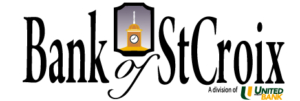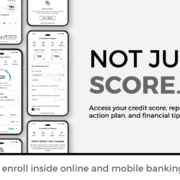What is a High-Yield Checking Account?
What is a High-Yield Checking Account?
Similar to a standard interest-bearing checking account, a high yield checking account allows you to earn a higher annual percentage yield (APY) therefore, ensuring that you earn more interest on the money in your account. According to the Federal Deposit Insurance Corp. (FDIC), in November 2023 a standard checking account earned 0.07% APY on average, while a high-yield checking account can earn upwards of 3.00%.
The biggest difference between standard and high-yield checking accounts are the criteria needed to qualify. For example, you may need to meet a certain number of debit card transactions per month, enroll in e-statements, or maintain a certain balance. Once all the monthly criteria are met, you then receive the APY associated with your account.
How does my account earn interest?
A high-yield checking account earns interest each statement period. However, if you did not meet the criteria for the month, the percentage you receive may be different.
What makes Elevate Checking different from other high-yield accounts?
With most high-yield checking accounts, all of the requirements must be met before earning interest. However, with Elevate Checking there’s more than one way to qualify. Earn interest by making six debit card purchases per month. Boost your rate by meeting any of these additional monthly qualifications: use online or mobile banking, receive eStatements, have monthly direct deposits of at least $500, maintain minimum daily balance of $1,000 in a Bank of St. Croix personal savings or money market account.
Each of our monthly qualifications is worth a certain percentage in interest. Therefore, the more criteria you meet, the more interest you earn, with potential to earn 2.00% APY.
Contact your local banker to learn more about our Elevate Checking Account today.
Annual Percentage Yield (APY) is accurate as of 08/01/2024. The APY range calculation is based on an assumed account balance cap of $30,000. The APY decreases as your balance increases above $30,000. Must meet certain criteria to qualify. When the Elevate Checking eligibility requirement and additional options are met, the interest rate on your account and corresponding annual percentage yield (APY) will vary based on the current applicable rates and tiers. When the Elevate Checking eligibility requirement is not met, the account will not earn interest. To obtain 2.00% APY you must complete a minimum of six (6) posted and cleared debit card Point-of-Sale (POS) purchases, access online or mobile banking, enroll and receive eStatements, ACH Direct Deposit(s) of at least $500.00, maintain a minimum daily balance of $1,000.00 in a Bank of St. Croix personal savings or money market account. Eligibility requirements must be in place and activity requirements must post and clear the account each statement cycle to receive the interest rate and APY of applicable rate tier. Rates and APY for each tier may change at any time without notice after the account is opened. Fees or other conditions could reduce earnings on the account. Minimum of $25 to open an account. Monthly service fee of $5 if balance drops below $500 any day during the statement cycle. Paper statement fee of $5 if eStatements are not utilized. Program rates, terms, and conditions are subject to change without notice.
A GUIDE TO AFFORDING YOUR FIRST APARTMENT
Congratulations on your new milestone… moving into your first apartment! While this is sure to be an exciting next chapter, it can also be overwhelming trying to understand the financial cost of apartment living. As a first-time renter, recognizing the financial responsibilities associated with renting will allow you to make smart decisions and ensure you can live comfortably. Here are a few things to consider when planning for your first apartment.
UNDERSTANDING RENTAL COSTS
In your research, you may have noticed that rental costs vary from place to place. Here are five main categories to help you better understand what costs go into apartment living.
- Security Deposit: This is typically equivalent to one month’s rent and is required by most property managers. This cost is typically refunded to you once the rental agreement is terminated.
- Monthly Rent: (Your most expensive cost): The cost of rent varies from city to city and complex to complex. Therefore, do some research to find out what the average cost of rent is in your area to determine a monetary goal. A good rule of thumb is to keep the cost of rent around 30% of your monthly income. This will ensure you have enough left over for other living expenses.
- Fees: There are several types of fees to consider when looking to rent an apartment – application fees, pet fees, parking fees, utility fees, and early move-out fees are fees you will typically come across in your apartment hunt. If you have any questions, reference the lease agreement, or contact the property management office.
- Utilities: Electricity, water, gas, trash, and internet are all costs to consider when moving into your first apartment. The cost of some utilities will vary depending on monthly usage, but others will be a flat monthly rate. Before moving in, understand which utilities will be added onto your monthly bill and which ones you may be responsible for.
- Renter’s Insurance: Like most insurances, renter’s insurance is meant to protect against damage caused by unexpected events. Most landlords require proof of renter’s insurance as part of the lease agreement. Insurance can be paid monthly or annually depending on your provider. Contact local insurance agencies to find a policy that works best for you.
IDENTIFY YOUR ESSENTIAL EXPENSES
When identifying your essential expenses, be sure to distinguish between your wants and needs. If necessary, make a list of non-negotiable expenses that contribute to your safety and survival (needs). Then, you can make a list of non-essential purchases that add fun and enjoyment to your life (wants). Having this list available will allow you to make informed financial decisions that will save you from stressing about your finances.
Examples of essential expenses:
- Rent
- Utilities
- Insurance
- Groceries
- Gas or transportation
Additional expenses to consider:
- Home Décor and Furnishings
- Laundry
- Parking
- Pet Fees
- Amenities Fee
MORE TIPS FOR AFFORDING YOUR FIRST APARTMENT
Set Your Savings Goal: Based on your research you should be able to determine an average monthly cost for renting your first apartment. With this information, you can create a budget that works best for you.
Consider Having a Roommate: Having a roommate can help decrease costs by splitting rent payments in half and sharing other monthly expenses.
Negotiate Your Rental Agreement: Some areas of your rental agreement may be negotiable. Based on your needs, communicate your expectations to your landlord and negotiate a contract that is agreeable for both parties.
Prioritize Needs Over Wants: While indulging in your wants are enjoyable, it’s important to prioritize your needs so you don’t fall into an unmanageable financial situation.
Elder Financial Abuse: How You Can Help
According to the National Council on Aging, “estimates of elder financial abuse and fraud costs to older Americans range from $2.6 billion to $36.5 billion annually.”
If you suspect someone may be a victim of elder financial abuse, you should report it to protect the safety and health of the person you are concerned about. This financial abuse could involve theft, fraud, or various scams designed to take an elderly person’s money or property.
Whether the abuser is a family member, a caregiver, or a stranger, it’s important to remember that there could be a real threat to that senior’s checking and savings accounts. These accounts could be wiped out all at once or they can be drained little by little.
Some of the warning signs you should look out for when it comes to elder financial abuse include the following:
- Unpaid bills piling up.
- Concerns about how people are handling an elderly person’s finances.
- Threats of utilities being cut off. (Note: Scammers will often ask you to pay with a wire transfer or a gift card. If you’re unsure, hang up immediately and call your bank or utility company at their official phone number and explain what happened.)
To protect yourself or a loved one from potential financial abuse, here are a few things to remember:
- Do not give out personal information including account numbers, social security number, or debit or credit card numbers unless you are sure it is necessary.
- Keep important financial documents locked up or in a safe and secure location.
- For better protection when purchasing, pay with a debit or credit card.
Reporting elder financial abuse can vary by state. However, you should report suspected abuse to local law enforcement and the local Adult Protective Services agency. If you know where the suspected victim does their banking, you should report your concerns to them as well, so they are able to take the appropriate precautions.
When filing your report, be sure to include the name of the elderly person, his or her address, the name of the suspected abuser, and note what you believe to be happening. Add as much information and detail as possible to the report.
While reporting potential financial abuse can be overwhelming, remember that you are their voice. For more information about financial exploitation of the elderly and vulnerable adults, visit the National Adult Protective Services Association.
April is Financial Literacy Awareness Month
Financial Literacy Awareness Month is observed nationwide by a variety of organizations. People all over the U.S. host educational events and activities throughout the month of April to promote the importance of financial literacy – especially to our nation’s youth.
In recognition of Financial Literacy Month, we would like to share some tips to help you better prepare for potential financial situations.
Safeguard Your Accounts with Multifactor Authentication
Multifactor authentication can increase the safe keeping of your financial accounts and information. The most widely used methods are challenge questions and one-time passcodes (sent via text, email, or phone call). This added layer of security does not allow anyone to fully log in to an account until after the username, password, and passcode/security answer are all entered correctly.
Avoid Late Fees with Online Bill Pay
Bills and payments can easily be lost or show up late in the mail. This can cause you to pay unnecessary late fees. To prevent this from happening, consider using online bill pay through your bank account or your mobile app. Bill Pay allows you to review your payments and make payments as quickly as the next day, so you no longer have to stress about a lost bill or payment. Start using today by logging into your UFB bank account or mobile app.
Save for Early Retirement
When entering the professional workforce, you’ll want to consider how you’ll fund your retirement. Most employers will offer retirement benefits like a 401k. However, IRA’s are also a good option to save. But how much are you supposed to save? First, determine what kind of retirement lifestyle you want. Then, just like budgeting, you’ll want to calculate the cost of that lifestyle and adjust your savings accordingly. Revisit your numbers annually to help you stay on track. If you need help, contact one of our local bankers for more information.
Saving vs. Investing as a Young Adult
Saving and investing can seem daunting when you first begin your career. However, the difference is simple… one is for short-term goals, the other is for long-term goals. For short-term savings goals – such as building an emergency fund, saving for vacation, or buying a car – you’ll want to keep your finances in an easily accessible location. This is normally a regular checking or savings account or can even be a certificate of deposit or high-yield savings account.
On the other hand, saving for long-term goals – like retirement – means investing money into a retirement account such as a 401k or an IRA. As a young adult, understanding where to put your money to start saving for your goals can set you up for a better financial future.
Saving Money for Vacation
Vacations are a wonderful time to relax on a beach, enjoy a cruise, or stroll through a new city. But one of the best parts is not having to stress over how to pay for it.
The first step for any vacation is to identify your budget. By planning out your finances, you can enjoy the perfect vacation that won’t break the bank. To help you get started, here are five tips to consider when you begin planning your budget-friendly vacation….
-
Open a savings account.
How much you save for your trip will help determine your budget. Having a separate savings account devoted to vacations, trips, or other getaways can make the planning process easier. Consider having a certain amount automatically deposited into a travel savings account each week. By putting funds into a dedicated travel account, you can create a healthy saving habit and build up your vacation spending money therefore lessening stress and allowing more time for rest and relaxation.
-
Plan ahead and take advantage of cost-saving tips and tricks.
When planning your vacation, do research to find any discounts or deals on activities, accommodations, transportation, rentals, etc. Early scouting can save you money whereas last-minute decisions may cost you extra.
-
Drive or fly?
Because you’ve successfully prepared, you’ve already done research on where you’re going and how long it will take to get there. Now is the time to answer the infamous question – do we drive or fly? Fortunately, there is no right or wrong answer. Consider how long it will take to drive, how many times you’ll have to fill up for gas, potential food costs and if you will be staying overnight. Then, research flight and rental car cost and decide which one is more economical for your situation.
-
Choose an unconventional location.
If you plan on vacationing in popular hot spot locations like Panama City Beach, FL; Miami, FL; or Gulf Shores, AL, it may be more expensive than if you travel to less popular destinations. If you are set on going to a vacation hot spot, consider looking at the surrounding areas to help decrease costs.
-
Set up card controls and keep track of your spending activity.
Two thing no one wants to worry about on vacation – money and fraudulent activity. By setting up card controls, you can easily keep track of all your purchases and identify if there is any suspicious activity. By actively tracking your vacation spending, you can stay in control of your budget as well as ensure your hard-earned money stays safe.
Ultimately, being in control of your budget (and sticking to it) can empower you to have the relaxing, worry-free vacation you deserve.
Get on top of your vacation savings today! Open your savings account now and start saving up for your dream vacation.
5 Money Savings Tips for the Holidays
‘Tis the season to be jolly… and financially responsible! While the holiday season is a time of merriment and joy, the extra expenses – shopping, travel, events, gifts, etc. – can also bring financial strain and added stress to those who aren’t prepared.
If you are looking to save money this holiday season, you’ve come to the right place! We’ve compiled five money-saving tips to help ease your financial stress this holiday season.
- Set a holiday budget. Review your normal expenses to find a spending limit you can afford. Look for areas you can temporarily (or permanently) afford to cut costs and use those savings toward your holiday fund.
- Make a list and check it twice. Gathering wish lists from friends and family can help you avoid buying expensive last-minute panic items. If you’re struggling to stay within your budget, you may need to trim people from the list or find a more affordable gift.
- Take advantage of seasonal sales. While Black Friday and Cyber Monday are thrilling to experience, they don’t always guarantee the best holiday deals. Taking time to look for the right offer can lead to big savings for you.
- Be mindful of using cards. Your debit and credit cards may offer built-in consumer protections, which can make them more secure than carrying cash, however, be careful not to get carried away. Overspending on your debit card can lead to unwanted overdraft fees, and overcharging on a credit card can lead to more monthly payments with additional interest charges.
- Don’t forget to make memories. There are many ways to enjoy the holiday season other than giving gifts. Make memories with your loved ones this holiday season by enjoying free activities such as looking at holiday lights, volunteering at a local homeless shelter or children’s charity, attending your local tree lighting, etc.
The holidays are a time for celebration, not financial worry. By practicing these money-savings tips, you can minimize stress and start focusing on the more important moments.
Have you already wrapped up this year’s holiday spending? Whether you have or not, it’s never too early (or late) to start saving for next year! Be prepared for future holiday expenses with our Holiday Club account. Learn more about our Holiday Club account by contacting your banking center today.








